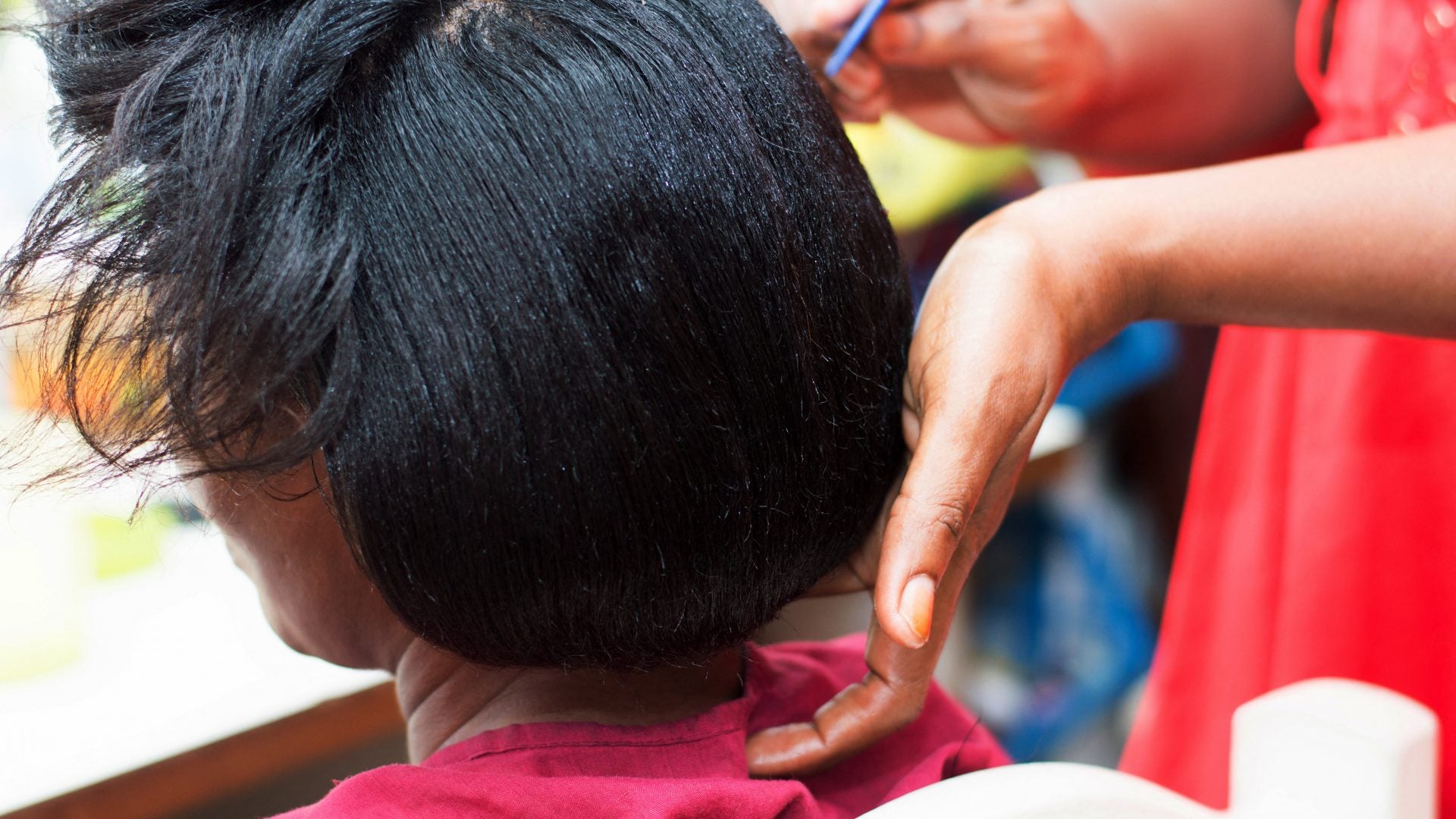
A research team at Boston University found that frequent and long-term use of lye-based relaxers may increase the risk of breast cancer among Black women, compared with more moderate use, the study’s co-author Dr. Kimberly Bertrand reported in The Conversation.
Her team found that “Black women who used hair products containing lye at least seven times a year for 15 or more years had an approximately 30% increased risk of estrogen receptor positive breast cancer compared with more infrequent users.”
The researchers studied data from Boston University’s Black Women’s Health Study, which followed 59,000 self-identified African American women for over 25 years.
Dr. Bertrand addressed the urgency of racial disparities in breast cancer, stating that “Black women diagnosed with breast cancer are 40% more likely to die from the disease than white women.” Black women are also “more likely than white women to develop highly aggressive breast cancers that have higher mortality rates.”
Though there is a link between some hair relaxer and breast cancers, Dr. Bertrand cautions that the study cannot definitively prove that hair relaxers cause cancer. More research is needed to investigate the risk, and to determine what causes the disparities between Black and white women. While systemic issues may contribute to disparities, they “don’t seem to fully explain the survival gap between Black and white women,” Dr. Bertrand writes.
Writer Tayo Bero assessed the larger social implications of these health risks, along with other cosmetic products targeted to Black women. Like relaxers, some skin lighteners have proven to be dangerous, with some that can lead to mercury poisoning. Mercury in lightening cream is banned in the U.S., but products made outside the U.S. may still contain the toxic ingredient.
“It’s important to examine why Black women are so overrepresented in the market for these harmful products to begin with,” Bero writes in the Guardian. “For centuries Black women in the west have been told that their skin tones and hair textures were inferior, unprofessional and largely undesirable.”
While movements towards natural hair have taken hold, the adverse health impacts of prolonged relaxer usage may still loom large for generations of Black women.